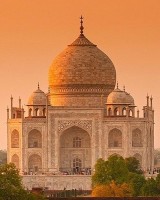Private guides and guided tours in Pakistan
Private guides in Pakistan
Travel Agency in Karimabad - Hunza
(Member Since 2011) Languages: English, Urdu, Wakhi, Chinese, French, Spanish, JapaneseDear traveler, we feel great to present Pakistan as your next destination. What started as an effort of a single man in small office in Hunza a back in 1998 has expended into an organization dedicated in promotion of Tourism in Pakistan.
Travel Agency in Lahore - Inayat
(Member Since 2025) Excursions/tous in the following cities: Islamabad, Lahore, Gilgit, Karimabad, Karachi Languages: EnglishThe Journey of Inayat Ullah Baig — Your Expert Guide in Pakistan Inayat Ullah Baig began his remarkable journey in 1994 as a humble porter, assisting trekkers in the northern regions of...
Private Guide in Karachi - Jamal
(Member Since 2007) Excursions/tous in the following cities: Karimabad Languages: English, Urdu, Sindhi, FrenchI have been in the travel business since 1989. I have worked in Pakistan extensively and has also lead tours to Uzbekistan Sri-Lanka, Dubai and Kenya. I was educated in a small village in the south east of...

Pakistan
Language: English
Currency: Pakistani rupee (PKR)
Calling Code: +92
CAPITAL CITY OF Pakistan: Islamabad
LANGUAGE OF Pakistan: English
CURRENCY OF Pakistan: Pakistani rupee (PKR)
COMMENTS ABOUT Pakistan:
Pakistan is a country in South Asia
Cities : Islamabad (capital), Karachi,Lahore, Rawalpindi, Faisalabad, Multan, Muzaffarabad, Peshawar, Quetta
Best Places : Karakoram Highway, Mount Godwin-Austin, Ranikot Fort in Kirthar National Park, Khewra, Shangrila Resort, Malam Jabba Ski resort, Lake Saif-ul-Mulk, Hill Resorts, Nathiagali & Ayubia in Murree, Kalasha Valleys, Makran Coastal, Baltistan, Thar and Cholistan deserts, Himalayas, Karakoram and Hindukush , The Hunza Valley
Electricity : 230V/50Hz (Europlug & Old British Plug)
Calling Code : +92
Time Zone : UTC+5.0
The separation in 1947 of British India into the Muslim state of Pakistan (with two sections West and East) and largely Hindu India was never satisfactorily resolved, and India and Pakistan have fought two wars - in 1947-48 and 1965 - over the disputed Kashmir territory. A third war between these countries in 1971 - in which India capitalized on Islamabad's marginalization of Bengalis in Pakistani politics - resulted in East Pakistan becoming the separate nation of Bangladesh. In response to Indian nuclear weapons testing, Pakistan conducted its own tests in 1998. The dispute over the state of Kashmir is ongoing, but recent discussions and confidence-building measures may be a start toward lessened tensions.
CLIMATE OF Pakistan: mostly hot, dry desert; temperate in northwest; arctic in north
RELIGION OF Pakistan: Muslim 97% (Sunni 77%, Shi'a 20%), Christian, Hindu, and other 3%
POPULATION OF Pakistan: 159,196,336 (July 2004 est.)>>>
ECONOMY OVERVIEW OF Pakistan: Pakistan, an impoverished and underdeveloped country, has suffered from decades of internal political disputes, low levels of foreign investment, and a costly, ongoing confrontation with neighboring India. However, IMF-approved government policies, bolstered by generous foreign assistance and renewed access to global markets since late 2001, have generated solid macroeconomic recovery the last two years. The government has made substantial inroads in macroeconomic reform since 2000, although progress on more politically sensitive reforms has slowed. For example, in the third and final year of its $1.3 billion IMF Poverty Reduction and Growth Facility, Islamabad has continued to require waivers for energy sector reforms. While long-term prospects remain uncertain, given Pakistan's low level of development, medium-term prospects for job creation and poverty reduction are the best in nearly a decade. Islamabad has raised development spending from about 2% of GDP in the 1990s to 4% in 2003, a necessary step towards reversing the broad underdevelopment of its social sector. GDP growth is heavily dependent on rain-fed crops, and last year's end to a four-year drought should support moderate agricultural growth for the next few years. Foreign exchange reserves continued to reach new levels in 2003, supported by robust export growth and steady worker remittances.



 French
French Spanish
Spanish Russian
Russian




















































